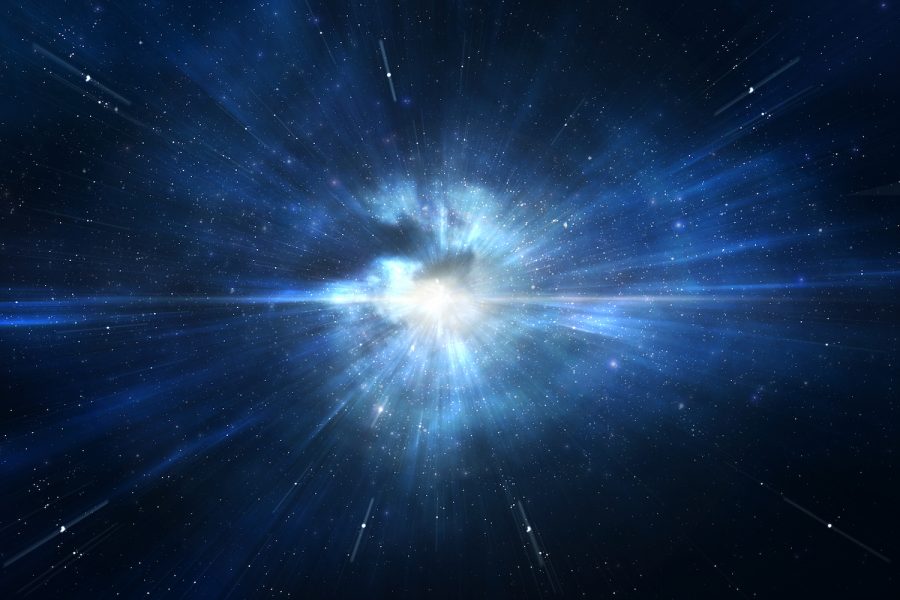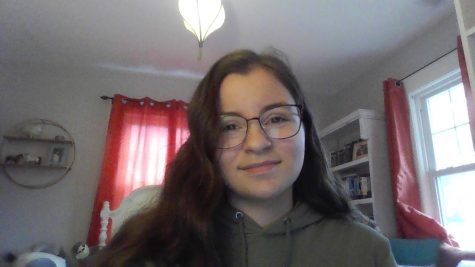Science for Everyone: Big Bang Theory
January 28, 2021
Science is the basis of all our understanding of the physical and natural world. But sometimes, the everyday person is put off by science because it just seems too complex or abstract to wrap our heads around. This column is an effort to explain complicated – but super fascinating – science theories and ideas in ways that make sense to everyone. Today is all about the Big Bang Theory.
What is the Big Bang Theory?
It is a theory that cosmologists (people who study the “big picture” of the universe, usually the origin, evolution, and ultimate fate of the universe) and theoretical physicists (people who are trying to understand the laws governing nature) have on how the universe started. No one knows exactly what happened and this theory has taken years to develop and is still developing as we study the oldest parts of our universe.
How do we know what happened?
First, you need to understand that when you look into space, you are looking back in time. This is because light takes a long time to travel, and so the farther an object is, the older it is when you are looking at it. For example, the light that we get from the Sun is eight minutes old. So if the Sun just went out one day, (which will most likely never happen) we would only know eight minutes later.
Now that means that when cosmologists look into space they are looking back in time. (Which is pretty cool if you ask me.) The farther they look, the older the universe gets. Because of this, it seems that the universe is 13.8 billion years old. (Don’t worry universe, you don’t look a year over five billion.) When I say that the universe is 13.8 billion years old, that means that when cosmologists look back, they only see things that are about 13.8 billion years old. If the Big Bang did happen, we should expect those distant views to show clouds of gas that have not turned into stars and galaxies, and lucky enough, scientists have found clouds like this. Cosmologists are also able to see the aftereffects of the Big Bang with telescopes. This is how they were able to figure out what happened.
What happened?
The universe was once a really hot, dense point in space. No one is really sure what happened before the Big Bang, but cosmologists are working on it. Then when the universe was really young, (around a hundredth of a billionth of a trillionth of a trillionth of a second old to be exact) it grew, a lot. It grew so much, in fact, that it doubled in size at least 90 times. The universe got cooler and less dense. In the first three minutes of the universe’s creation, light chemical elements were created. The universe kept on growing and temperatures kept on lowering and protons and neutrons collided to make deuterium, which then combined to make helium.
The first 380,000 years after the Big Bang, the universe still had intense heat which made it basically too hot for light to shine. Lucky for us, matter cooled down enough for electrons to combine with nuclei to form neutral atoms. The light that was unleashed at this time is detectable today in the form of radiation. Ironically enough after this period, an era of darkness began.
Roughly after 400 million years, this era ended. During this time, clumps of gas collapsed enough to form the first stars and galaxies. The ultraviolet light emitted from these events got rid of most of the neutral hydrogen gas. This clearing of foggy hydrogen gas and the stars being created made the universe become transparent to ultraviolet light for the first time.
More stars and more galaxies were being created and finally, a little after 9 billion years after the Big Bang, our solar system was born. Many scientists think that the Sun and the rest of our solar system were formed by a giant rotating cloud of gas and dust known as a solar nebula. Gravity caused the nebula to collapse and it spun faster and collapsed into a disk. A lot of the matter was pulled toward the center and made the Sun.
Boom. Now you’re all caught up on what happened.
What’s next?
We now know that the universe is not static. It is constantly expanding and growing larger by the minute. Scientists are constantly learning new things and adding to their knowledge. Two big things that concern the Big Bang that scientists are still working on are dark matter and dark energy. These mysterious things may be what is making our universe grow. (I might go over those two in another article.) Hopefully, now you know a little more about how our universe was created.
Some resources if you want to read more.
https://www.space.com/13347-big-bang-origins-universe-birth.html
https://www.space.com/13320-big-bang-universe-10-steps-explainer.html

